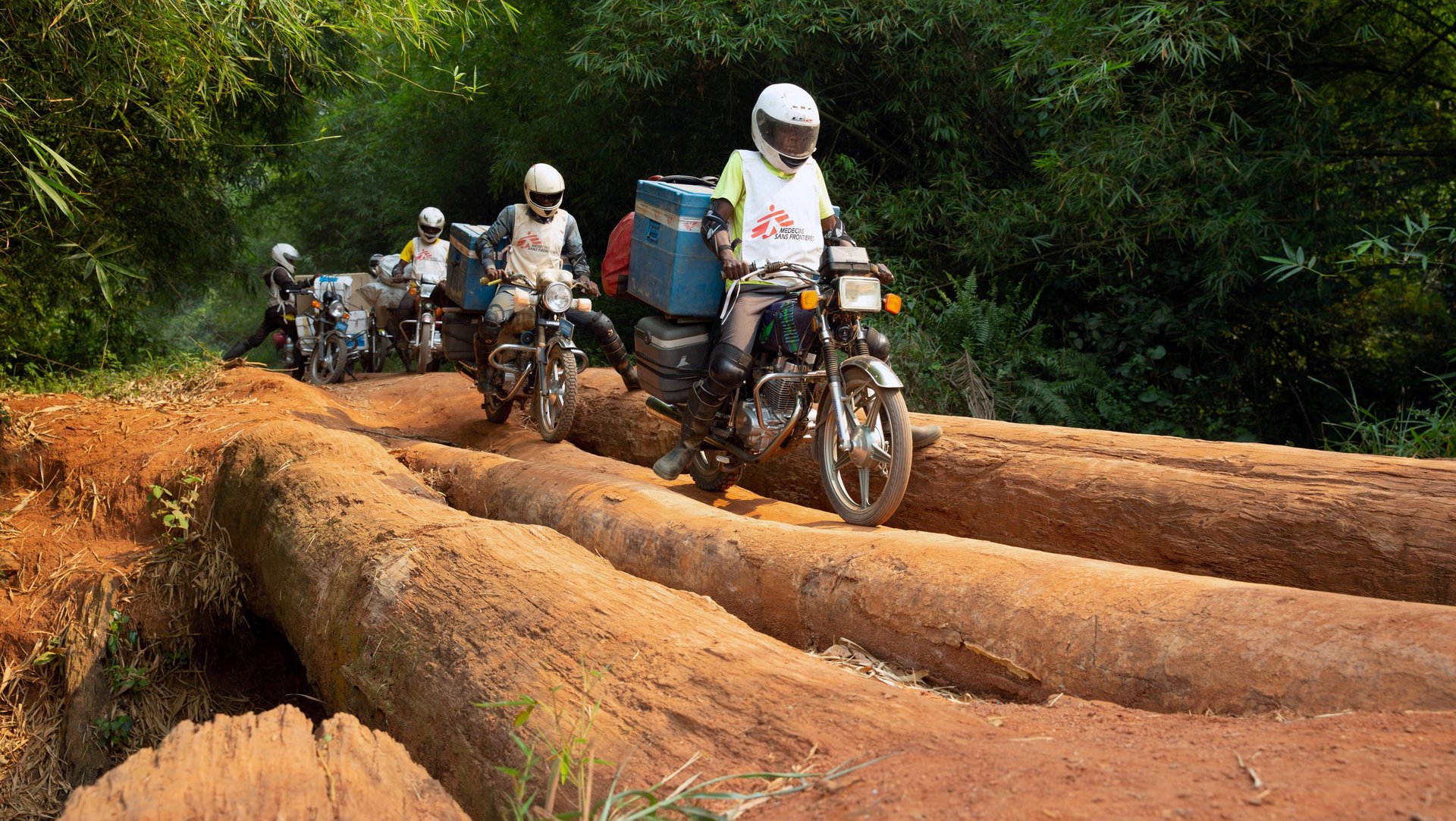A successful Ebola vaccine delivery shows how a Covid-19 vaccine would work in Africa
There have been growing concerns the very low-temperature requirements for the promising Covid-19 vaccine candidates developed by Pfizer and Moderna will lead to storage and logistics challenges that may hinder access to these vaccines in most parts of Africa and other developing regions, even in rural parts of developed countries.


There have been growing concerns the very low-temperature requirements for the promising Covid-19 vaccine candidates developed by Pfizer and Moderna will lead to storage and logistics challenges that may hinder access to these vaccines in most parts of Africa and other developing regions, even in rural parts of developed countries.
The Pfizer and Moderna candidate, which have both been reported to be 95% effective in stopping Covid-19 transmission, require ultra-cold storage of -80 oC and -20 oC (-112 oF and -4 oF) respectively. These temperatures are below what can be currently obtained with most cold chain facilities in the world as the standard for vaccine storage is 2 oC to 8 oC (36 oF to 46 oF).
While these are well-founded concerns, some African countries have experience in the use and successful delivery of at least one vaccine that requires ultra-cold storage.
“We are not starting from scratch in Africa. There are some experiences some countries have learned in the past,” says Dr. Richard Mihigo, the deputy incident manager for emergency response at WHO Africa. “The Ebola vaccine developed by Merck also used ultra-cold equipment of about -70 oC and we were able to deploy that vaccine in the Democratic Republic of Congo (DRC) to respond to the North Kivu outbreak where more than 300,000 people were immunized.”
The Merck vaccine was also used in the latest Ebola outbreak in DR Congo which the WHO recently declared as over this month. “We were able to immunize close to 40,000 people in the Équateur region which has helped to stop the Ebola outbreak,” said Mihigo. “The same vaccine was used in South Sudan, Uganda, Rwanda, Burundi.”
This success was made possible mainly by a piece of technology called the Arktek introduced in 2014 during the Ebola outbreak in Sierra Leone. The Arktek which costs around $2,000 is a high-tech insulated and reusable container that can keep a vaccine at -80 oC for up to a week in the field even if the container is opened several times a day. The technology involves the use of a Phase Change Material (PCM) in this case, ‘ice’ made from alcohol mix with water to maintain the required temperature.
While the vaccines were stored in several central points equipped with deep freezers that can maintain 80 oC temperature, the Arktek cylinders which can carry up to 500 doses and be transported on motorbikes were used to move the vaccines to rural, remote, and hardly accessible communities.
This suggests that using this Ebola vaccine deployment approach, the leading Covid-19 vaccine candidates can be successfully deployed in Africa. This can be said more confidently for Moderna’s because while Pfizer’s requires a temperature of -80 oC at all times, Moderna’s can be stored at standard vaccine temperatures of 2 oC to 8 oC for 30 days.
“We do have a limited but very strong experience in using vaccines of that range in the country even with challenges like insecurity and poor road infrastructures,” said Mihigo. “It will require additional effort if these vaccines have to be used in other different countries but the good news is that we have already enough experience at WHO to help support the countries with that.”
“These past successes show that a successful Covid-19 vaccine introduction is possible with strong leadership, collaboration around a common goal, and sufficient resources from governments, the private sector, and philanthropy,” said a spokesperson for the Bill & Melinda Gates Foundation, which supported the deployment of the Ebola vaccine and is one of the funders of Gavi, the vaccine alliance. Bill Gates also funded the development of the Arktek in a personal capacity.
Sign up to the Quartz Africa Weekly Brief here for news and analysis on African business, tech, and innovation in your inbox